
Witness of Yellow Chrysanthemums by Anna Kostenko
(Анна Костенко: «Свідок жовтих хризантем»)
Lviv, 2025; compiled and designed by Andrii Dostliev; photographs by Oleksandra Chesnova; literary editing by Anastasiia Platonova; with introduction by Lia Dostlieva
A collection of short, diary-like prose stories that offer readers an intimate glimpse into everyday life in Ukraine’s East — a world often seen only through the lens of loss, distance, or conflict. These quiet, fragmentary narratives reveal the region not as merely a space of absence, an unreachable home, a territory of war, or an exotic land inhabited by mythologized figures — but as a living, breathing landscape filled with vibrant normality of regular human lives.
This publication is distributed in exhange for donations to the Ukrainian Army — contact aftersilencengo@gmail.com (if you are in Ukraine) or a.dostliev@gmail.com (if you are outside Ukraine) for details.
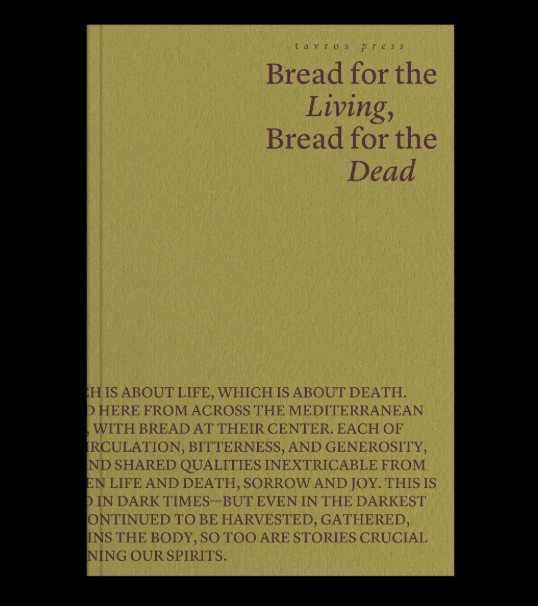
Bread for the Living, Bread for the Dead
TAVROS PRESS, 2025
texts by Jumana Emil Abboud (Palestine / Canada) Juliet du Boulay (Greece / UK) Maria-Thalia Carras (Greece) Lia Dostlieva and Emine Ziyatdin (Ukraine) Alix Guibert (France) Kostantia Manthou (Greece) Yiannis Palavos (Greece) Neni Panourgiá (Greece / US) Vivien Sansour (Palestine / US) Alexander Strecker (Greece / Canada) Pelin Tan (Turkey). Editor: Alexander Strecker.
Bread gathers, bread nourishes; it plays a central role in celebrations of life and rituals of mourning. Bread offers a site for collecting practices of self-reliance and camaraderie, as well as histories of migration and struggles over land. Combining vernacular wisdom, academic expertise, and embodied forms of intelligence, Bread for the Living, Bread for the Dead comprises a timely and nourishing collection of perspectives. Forgoing a placeless view, the publication centres localised knowledges of baking as a means of survival and community-making, a living heritage carried by each of us from wherever, uprooted, we came.
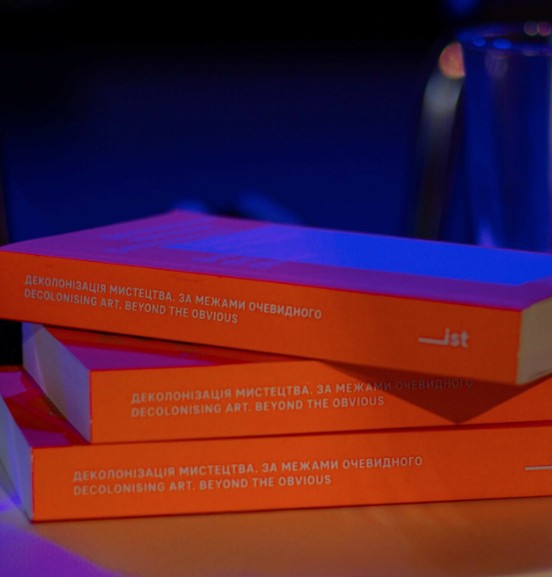
Decolonizing Art: Beyond the Obvious
ist publishing, 2025
texts by Daria Badior, Kateryna Botanova, Lizaveta German, Lia Dostlieva, Anna Lazar, Anastasiia Manuliak, Shahin Merali, Anastasiia Platonova, Hanna Rudyik, Madina Tlostanova, Tetyana Filevska, Borys Filonenko, and Olena Chervonyk.
Authors reflect on key decolonization processes worldwide in light of Russia’s full-scale invasion of Ukraine as well as art’s role in the emerging world order.
The book is distributed free of charge among researchers, artists, students in relevant fields of study, and cultural professionals. To order a copy of the book, please fill out the form at the link below: Order the book
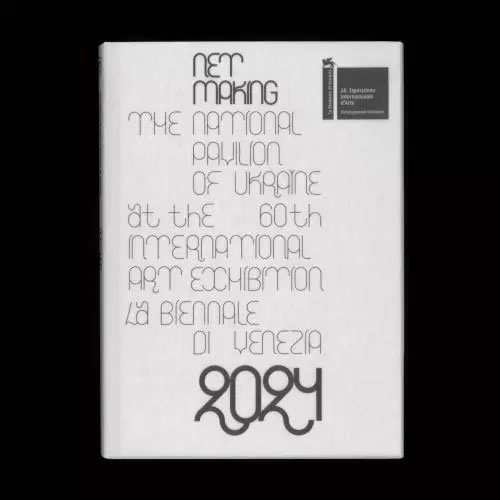
Net Making
ist publishing, 2024
texts by Viktoria Bavykina, Kateryna Botanova, Oleksandr Burlaka, Katya Buchatska, Charlotte Higgins, Max Gorbatskyi, Andrii Dostliev, Lia Dostlieva, Alona Karavai, Michael Kurtz, Andrii Rachynskyi, Daniil Revkovskyi, Vid Simoniti.
Catalogue of the National Pavilion of Ukraine at the 60th International Art Exhibition of La Biennale di Venezia.
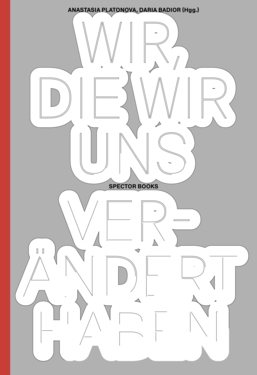
A. Platonova, D. Badior (editors), Wir, die wir uns verändert haben. Ukrainische Kulturschaffende erleben den Krieg, Spector books, Leipzig, Germany, 2024
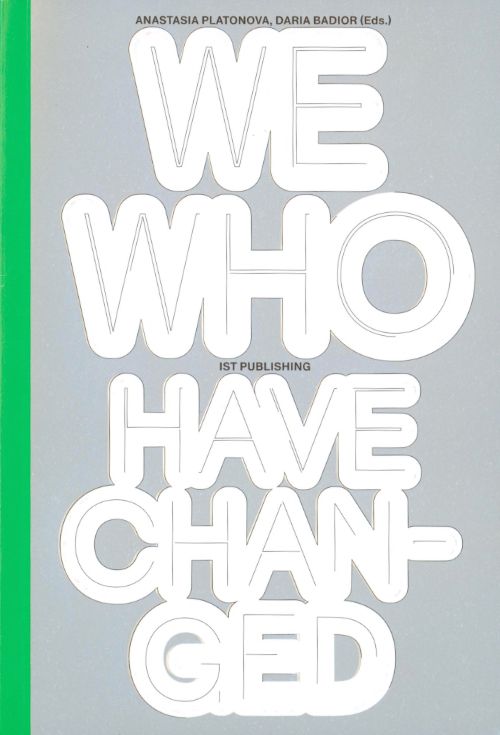
A. Platonova, D. Badior (editors), We Who Have Changed, Ist Publishing, Kyiv, Ukraine, 2024
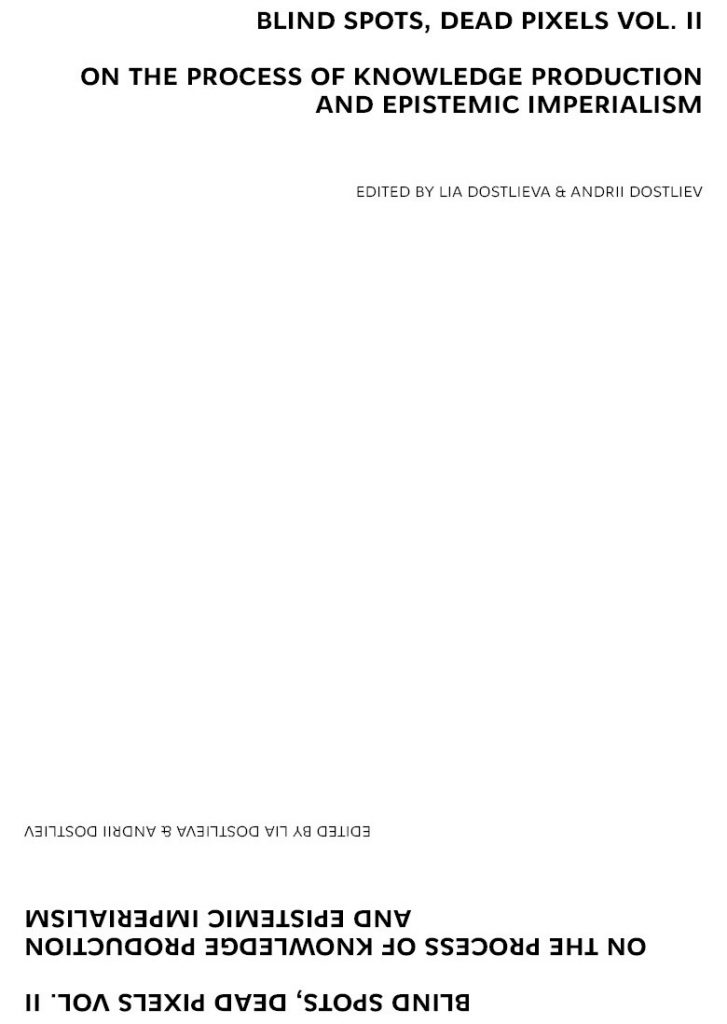
Blind Spots, Dead Pixels Vol.2
self-published, 2024
edited by Lia Dostlieva and Andrii Dostliev
texts by Darya Tsymbalyuk; Alevtina Kakhidze; Botakoz Kassymbekova and Erica Marat; Tereza Hendl, Olga Burlyuk, Mila O’Sullivan, and Aizada Arystanbek; Olga Burlyuk and Vjosa Musliu; Lia Dostlieva and Andrii Dostliev.
The “Blind Spots, Dead Pixels Vol.2” reader on the process of knowledge production and epistemic imperialism was produced for the eponymous workshop curated by Lia Dostlieva and Andrii Dostliev. Its presentation took place in February 2024 at Schinkel Pavillon in Berlin.
Email me for a copy of the reader.
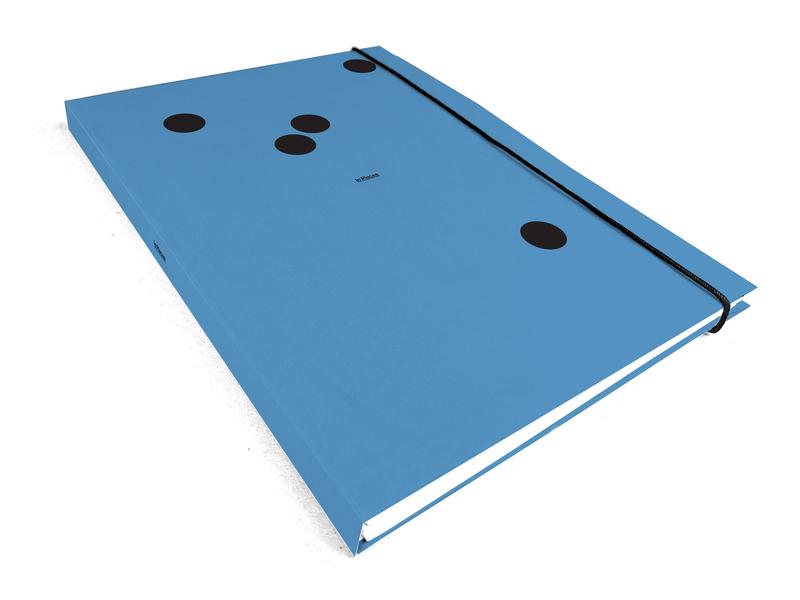
‘In Pieces’, Sophia Bulgakova, Lia Dostlieva, Ola Lanko, Katia Motyleva, Kateryna Snizhko; Growing Pains, Amsterdam, Netherlands, 2023
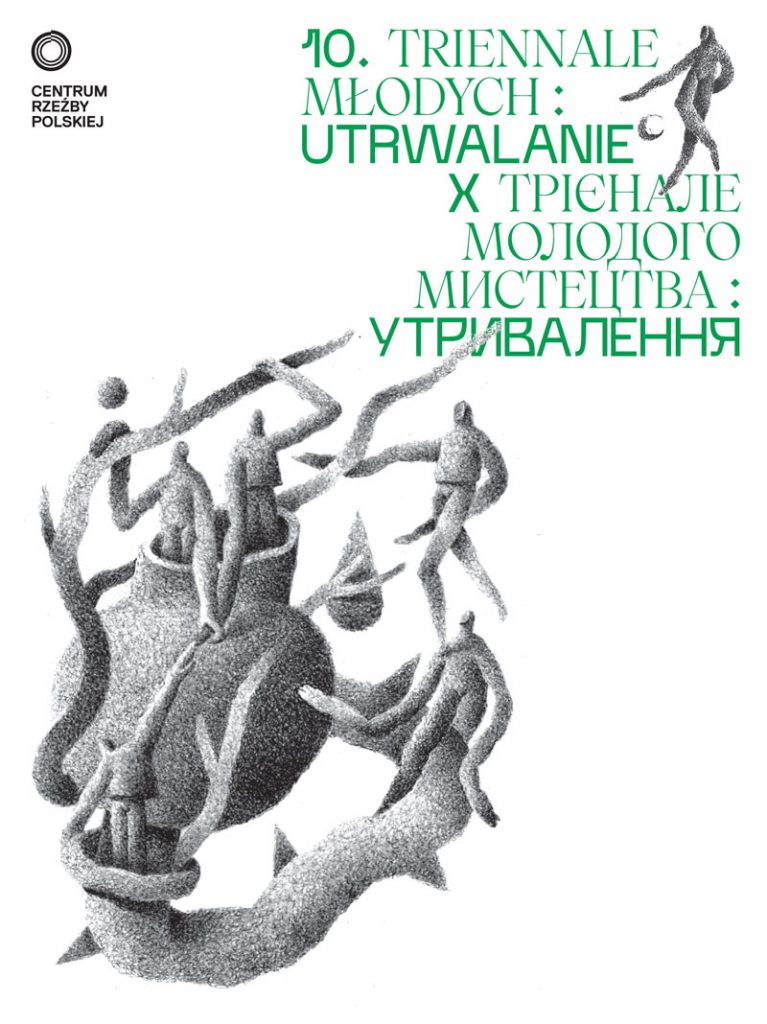
10. Triennale Młodych: Utrwalanie
Wydawnictwo Centrum Rzeźby Polskiej, 2023
edited by Stanisław Małecki, Lia Dostlieva, Andrii Dostliev
texts by Stanisław Małecki, Lia Dostlieva, Andrii Dostliev, Michalina Sablik, Aleksy Wójtowicz, Anastasiia Platonova, Lisa Korneichuk, Asia Tsisar, participating artists.
Catalogue of the 10th Young Triennale: Consolidation held at the Centre of Polish Sculpture in Orońsko in 2023.
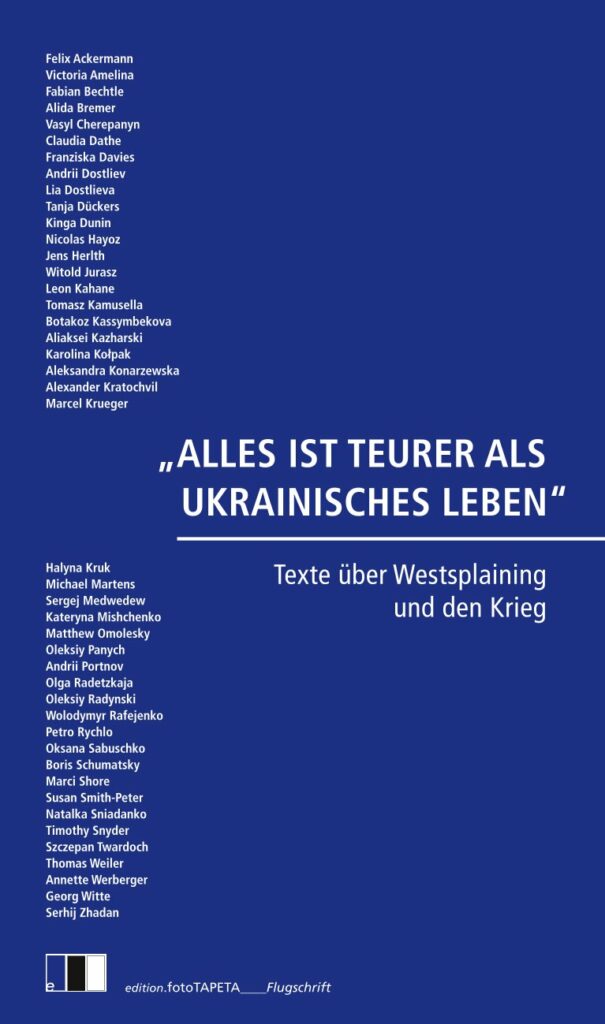
A. Konarzewska, S. Schahadat, N. Weller (editors), „ALLES IST TEURER ALS UKRAINISCHES LEBEN“
Texte über Westplaining und den Krieg, edition.fotoTAPETA_Flugschrift, Berlin, Germany, 2023
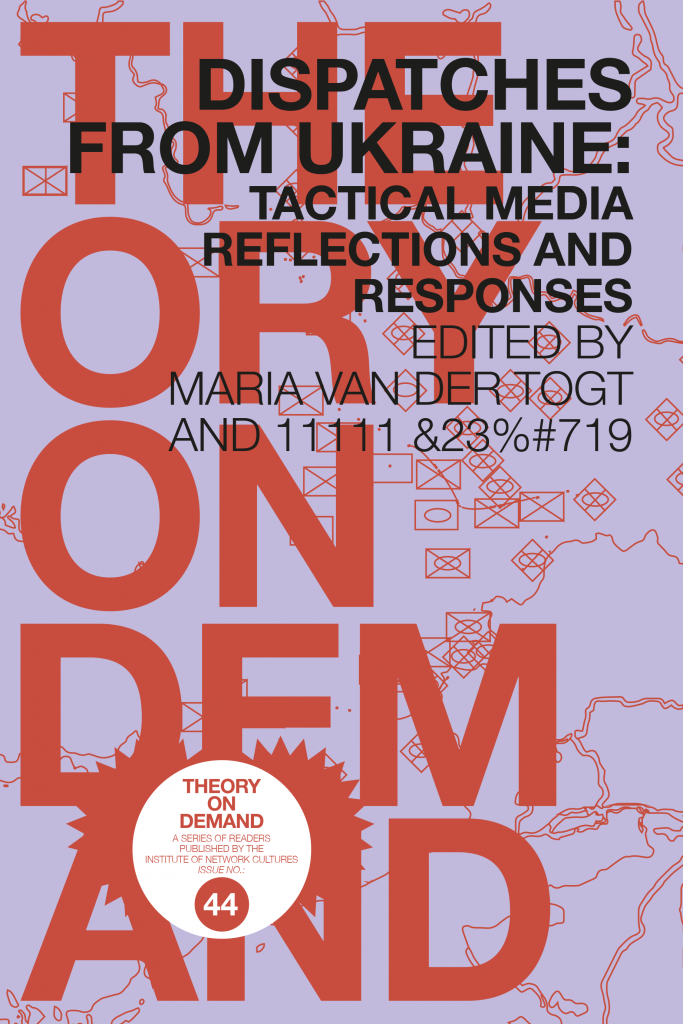
Maria van der Togt, 11111 &23%#719 (editors), „Dispatches from Ukraine: Tactical Media Reflections and Responses“, Institute of Network Cultures, Amsterdam, Netherlands, 2022
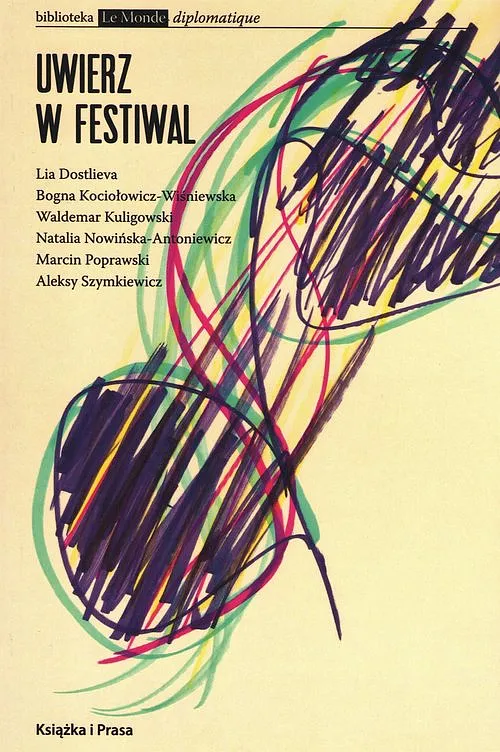
‘Uwierz w festiwal’, Książka i Prasa, Warsaw, Poland, 2022
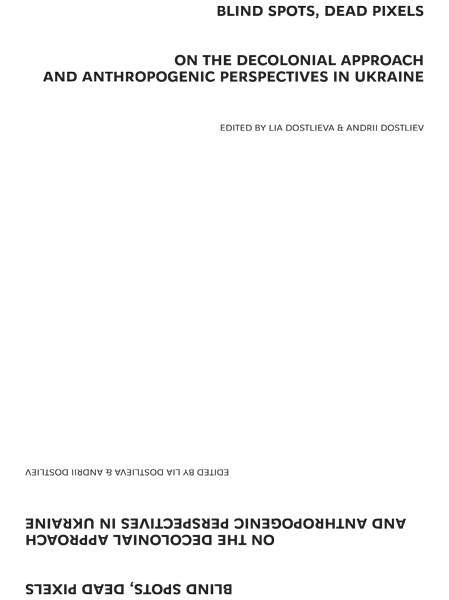
Blind Spots, Dead Pixels
self-published, 2022
edited by Lia Dostlieva and Andrii Dostliev
texts by Kateryna Iakovlenko, Olesya Khromeychuk, Daria Badior, Uladzimir Hramovich, Andrii Dostliev and Lia Dostlieva
The “Blind Spots, Dead Pixels” reader with Ukrainian perspectives on decolonisation and Anthropocene was produced for the “No one will say my words for me, No one will do my job for me” program curated by Kateryna Filyuk. Its presentation took place in May 2022 at ‘Drop-In It’s OK… for common uncertainties’ in Amsterdam.
Email me for a copy of the reader.
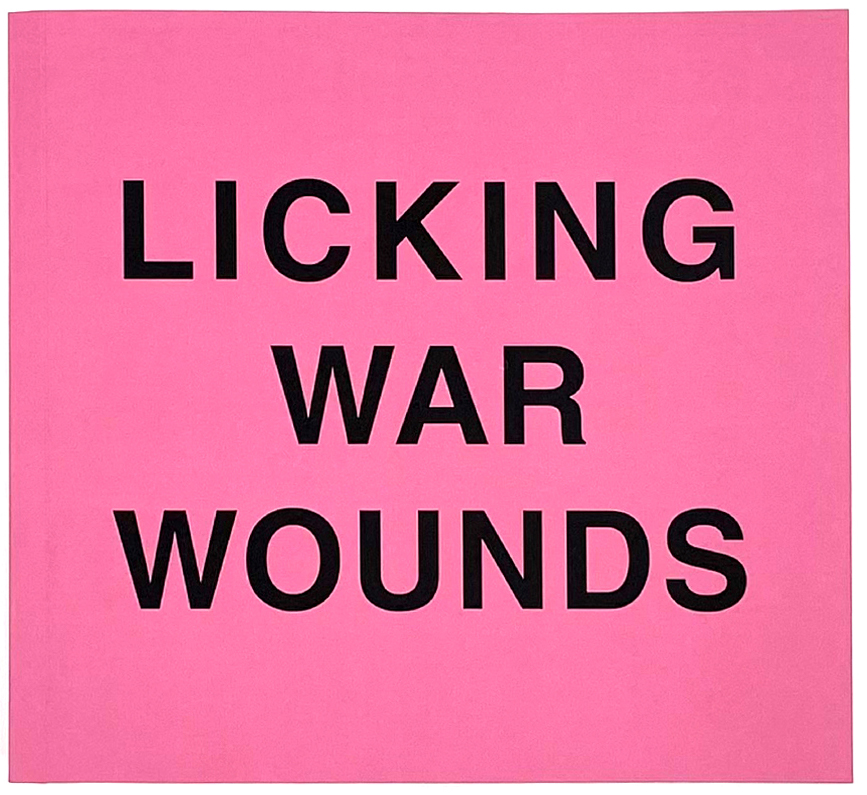
Andrii Dostliev, Lia Dostlieva
Licking War Wounds
89books, 2022
This tank-shaped salt lamp was purchased from a souvenir shop in Bakhmut in late 2016. Bakhmut (formerly Artemivsk) is a city in Eastern Ukraine famous for its salt mines. For a short period of time in 2014, the city was under occupation by Russian terrorists from the so-called DPR. Various salt lamps always were a large part of city’s souvenir industry, but this particular kind, in the shape of a tank, has only appeared recently, after the city was liberated by the Ukrainian army.
Such tank-shaped souvenirs are only a minor aspect of general traumatisation of the Ukrainian society caused by the war lasting since 2014. This traumatisation is yet to be overcome by the Ukrainians, a very long and complex process that might take many years. One of the many war wounds that we have yet to lick.
And we were literally licking (yes, physically licking this salt tank with our tongs) this particular one, day by day, bit by bit. This slow and quite painful process demonstrates the slow and not necessarily successful re-shaping of the object of trauma.
publisher’s website
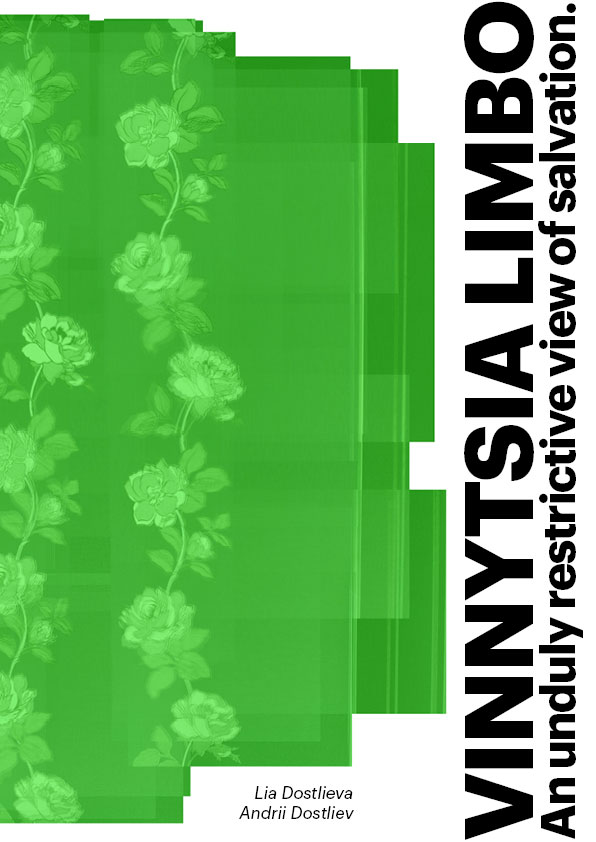
Lia Dostlieva, Andrii Dostliev
An unduly restrictive view of salvation (Vinnytsia Limbo)
self-published, 2020
In the 2000s, Vinnytsia, a relatively small city in Ukraine, temporarily became an important hub of clandestine migration from Somalia to the EU. The route started in Somalia, led through the Gulf countries, then Moscow, through the Russian-Ukrainian border and after a stop in Vinnytsia (where the headquarters of the facilitators of the illegal border crossings were situated) through Transcarpatia, Slovakia or Hungary, Austria, and ended usually in Munich or Frankfurt.
For this project, we attempt to reconstruct the mythological space of cheap apartments for rent, where Somali migrants could have stayed in Vinnytsia, as well as optics through which they could have perceived the city.
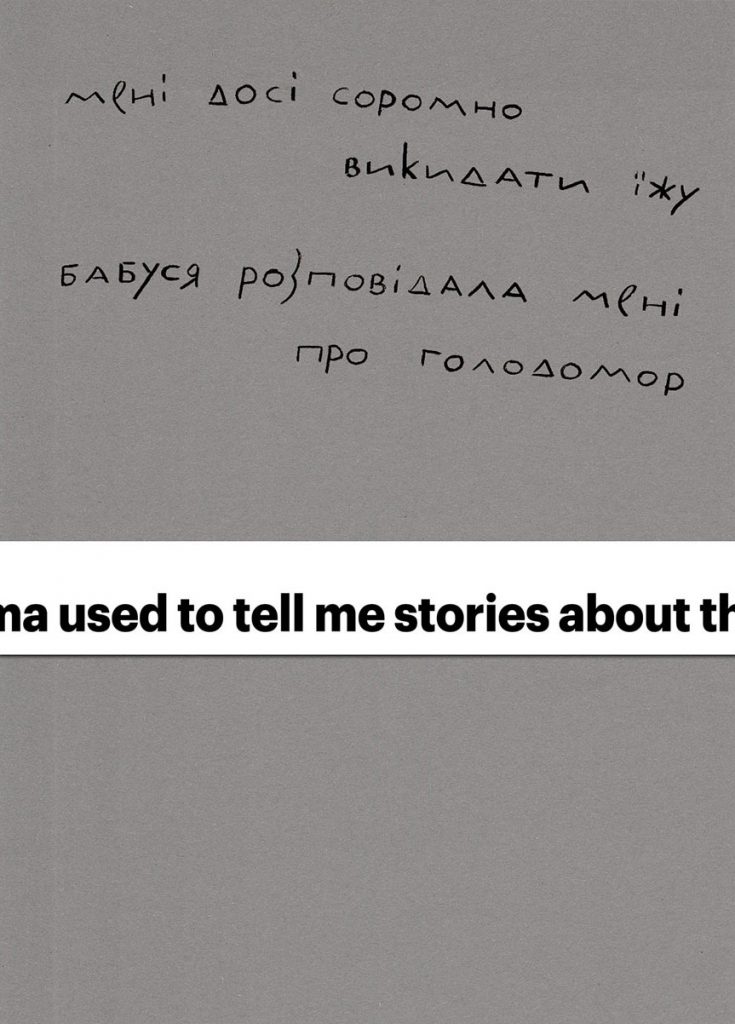
‘I still feel sorry when I throw away food – Grandma used to tell me stories about the Holodomor’, Lia Dostlieva, Andrii Dostliev, introduction by Serhiy Zhadan, Rodovid, Kyiv, Ukraine, 2019
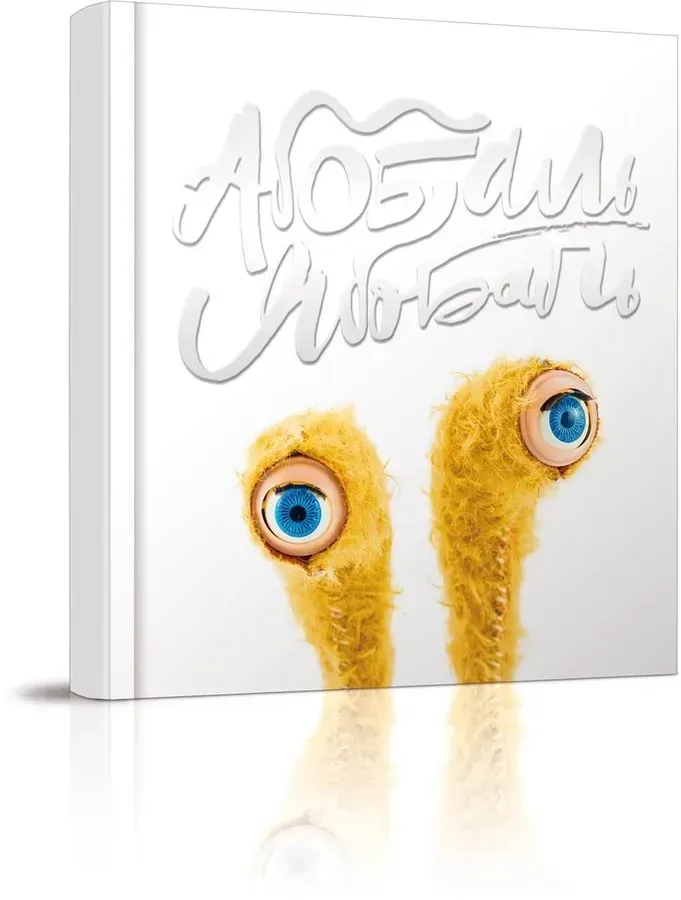
‘Abobal->Yabobal’, child book, (as an illustrator, photographer and author of the creatures) Lia Dostlieva, Dmytro Kuziakin, Zakenty Horobiov, Talent publishing house, Kharkiv, Ukraine, 2018